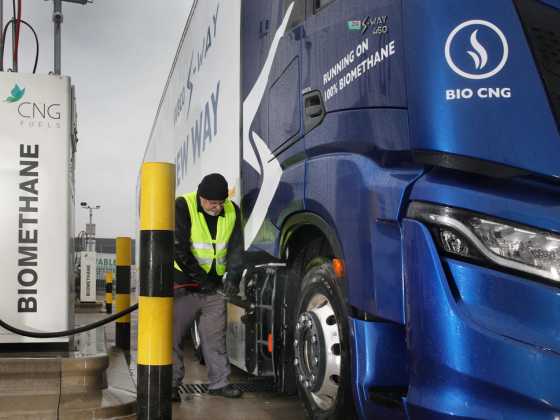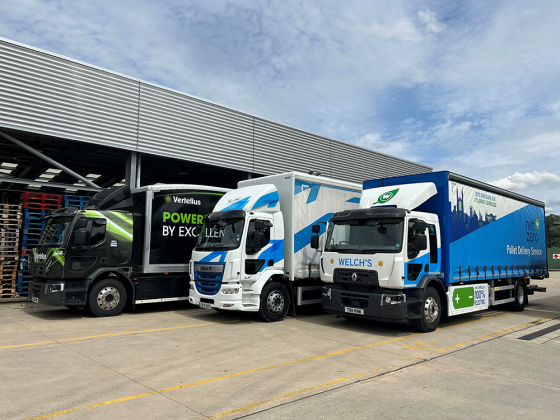Keeping cost‑effective and efficient

There is no single challenge, but a plethora of major issues that must be tackled by fleet decision‑makers to ensure company car and commercial vehicle operations remain cost-effective and operationally efficient, writes ICFM director Peter Eldridge
Fleet operators are not averse to change, but they will not expose themselves or their businesses to risks.
In recent years fleets have broadly continued to ‘do what they have always done’ because there has been no ‘big bang’, but that changes in 2018 and into 2019.
There is no single challenge, but a plethora of major issues that must be tackled by fleet decision-makers to ensure company car and commercial vehicle operations remain cost-effective and operationally efficient.
Tax changes
Vehicle and company car benefit-in-kind tax changes mean fleets must review whether diesel remains a fleet favourite, or whether petrol, hybrid and plug-in options have a home with a more ‘balanced’ approach to powertrain choice.
Simultaneously, the impact on company car choice lists and vehicle-related taxation of the Worldwide harmonised Light vehicles Test Procedure must be tackled as more information becomes available.
Today’s Euro 6 emission cars produce more power and torque with lower CO2 rates when compared with traditional petrol‑based engines. But the government’s ill-informed “all diesels are dirty” obsession will filter down through to local authorities. That could mean an avalanche of local diesel surcharge parking schemes to boost council coffers, as well as Clean Air Zones. Getting to grips with the April 2019 introduction of the London Ultra-Low Emission Zone is also a priority, while the city’s Mayor Sadiq Khan is also promising Zero Emission Zones could be introduced in some parts of the capital as soon as 2020 in a bid to accelerate the roll-out of electric vehicles.
Data overload
‘Big data’ and all that it entails can be added to the above challenges. This includes the connected car, the internet of things, cyber security concerns and the recent (25 May 2018) introduction of the General Data Protection Regulation (GDPR), which notably impacts on the sharing and using of personal vehicle user data. What’s more, fleets must be aware that on 1 January 2019, new international lease accounting standards will be introduced, which require leased assets to be reported on company balance sheets.
The above list is far from exhaustive and I’ve not even touched on Brexit and the impact that no trade deal could have on fleet operations, notably in respect of potential new vehicle delivery and spare parts order delays due to border customs changes and price increases.
Encouragement to go green
From a ‘green’ perspective fleet decision-makers require encouragement to introduce plug-in vehicles with powerful financial arguments essential to drive environmental policy changes.
However, for UK fleets electric vehicles remain a conundrum. What’s more, plug-in hybrid cars are, for a significant number of fleet managers, the proverbial duck out of water, operating predominantly outside of their economic efficiency zone with the typical view being that higher operating costs – and specifically fuel bills – would be the result when compared with equivalent diesel models.
The corporate sector is responsible for buying the majority of new cars in the UK – a 55.8 per cent market share last year according to the Society of Motor Manufacturers and Traders. But for fleet managers to drive along the plug-in vehicle road in significant volume, they must feel confident about electric vehicle technology and vehicle recharging as well as plug-in vehicle residual values and operating costs.
They must also resist company car benefit-in-kind tax ‘loophole’ vehicle choices – specifically plug-in hybrids – that were not fit‑for‑purpose and not be drawn into poor fleet vehicle decision‑making due to fuel type ‘demonisation’ of diesel in recent months.
Plug-in vehicles must be attractive to mainstream fleet operations in terms of technology and cost and currently there remains too many unknowns across a sector that remains embryonic in terms of sales.
ICFM members want to see clear government strategy that they can ‘hang their hat on’. It is key for fleet managers to meet operational requirements. But fleet professionals need to have the right tools for the job and need to look to the future and be able to react and set policies.
Moving forward there is no definitive right fleet fuel, but vehicle operations will feature a mix based on fitness-for-purpose.
To move away from the traditional internal combustion engine, fleet decision-makers require encouragement to introduce plug-in vehicles with powerful financial arguments essential to drive environmental policy changes.
Shifting business model
Meanwhile, the worlds of fleet management and travel management are colliding at a rapid rate, driven by technology and ‘big data’ that will underpin BMaaS and the move to a total cost of mobility concept – understanding the full cost of employees travelling from A to B and not just the vehicle cost.
Telematics is becoming far more key and there is greater reliance on a communications platform. The business model is shifting to car services because of ‘big data’. The industry is moving from being asset – the vehicle – driven to be focused on employees and their movements. Massive momentum is being built so fleet managers need to think about their operational model.
Companies could look to set a mobility budget for each employee that will influence the mode of transport they take – company car, car club, car share, car hire, public transport or whatever – based on a range of factors including fitness-for-purpose, cost, convenience and safety. Employees will be able to access travel options via their own portal, make bookings and keep a track of their budget. The journey to mobility on demand is occurring very quickly.
There will be ‘big bangs’ aplenty over the next 12 months, which will, ICFM believes, be a watershed period in the history of fleet.






